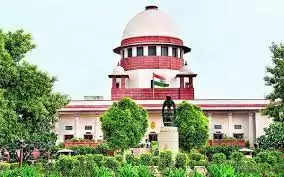No prosecution under Section 66A of Information Technology Act 2000 - Supreme Court of India
Section 66 A has been struck down by the Supreme Court’s order dated 24 March, 2015 in the Shreya Singhal vs Union of India
According to media reports, the Supreme Court on Wednesday, October 12, 2022 ordered that no citizen can be prosecuted under Section 66 A of the Information Technology Act of 2000, which it had already nullified in 2015. Section 66A has been struck down by the Supreme Court’s order dated 24 March, 2015 in the Shreya Singhal vs Union of India. The Supreme Court has ordered all Director Generals of Police, Home Secretaries and competent officers in all States and Union Territories to instruct the respective police forces to refrain from filing any criminal complaints under suspected violation of the aforementioned Section 66A.
Understanding Section 66A, which states that anyone who uses a computer or a communication device to persistently post information they know to be illegal, offensive, and to cause annoyance, inconvenience, danger, obstruction, insult, injury, criminal intimidation, enmity, or hatred is subject to a fine and up to three years in prison as well as other penalties. Union of India argued that Section 66 A of the Information Technology Act, 2000 should be repealed in its entirety since it violated Article 19 (1) (a). The bench noted that the attorney for the center has submitted a report for all cases pending under Section 66A. The first PIL on the subject was filed in 2012 by law student Shreya Singhal, who requested a remedy under section 66A of the Act following the arrest of two females in Palghar, Maharashtra's Thane district, Shaheen Dhada and Rinu Shrinivasan.
The apex court, as per the media reports, made it clear that this directive only applies to crimes punishable under Section 66A, and that references to and reliance on Section 66A alone must be eliminated if other crimes are also claimed to have occurred. People (Shreya Singhal), NGOs (People's Union for Civil Liberties, Common Cause), and businesses have filed writ petitions in the Supreme Court challenging the rules. Justices Chelameswar and Nariman convened a two-judge bench to hear the different petitions collectively. It is important to note that the Court invoked the "chilling effect" on speech brought on by vague and too broad legislative wording as justification for removing the provision.
The media reports say that the top court ordered all state governments to educate their police officers on its March 24, 2015 ruling, which repealed section 66 A of the Act, on February 15, 2019, to prevent people from being arbitrarily detained under the provision that was overturned. Although Section 66A was ruled to be unlawful and has since stopped being used as a punishment against online speech, the Supreme Court's ruling is nevertheless extremely significant in defending online free speech against arbitrary limits.
Source: Media Reports
To join us on Facebook Click Here and Subscribe to UdaipurTimes Broadcast channels on GoogleNews | Telegram | Signal



